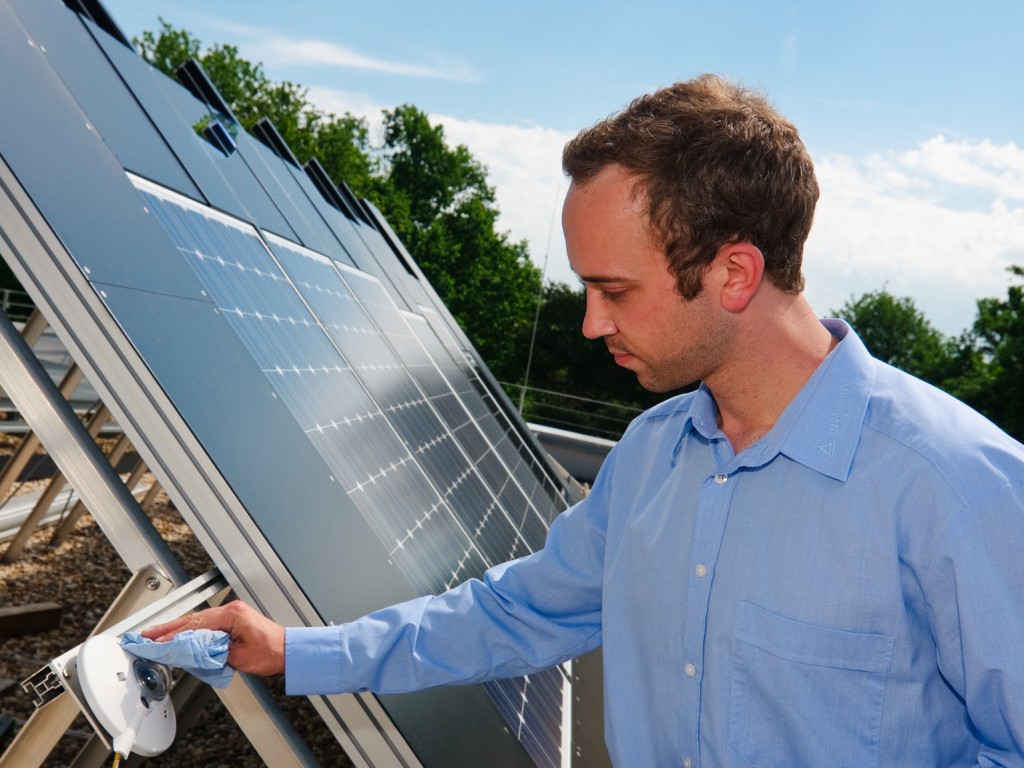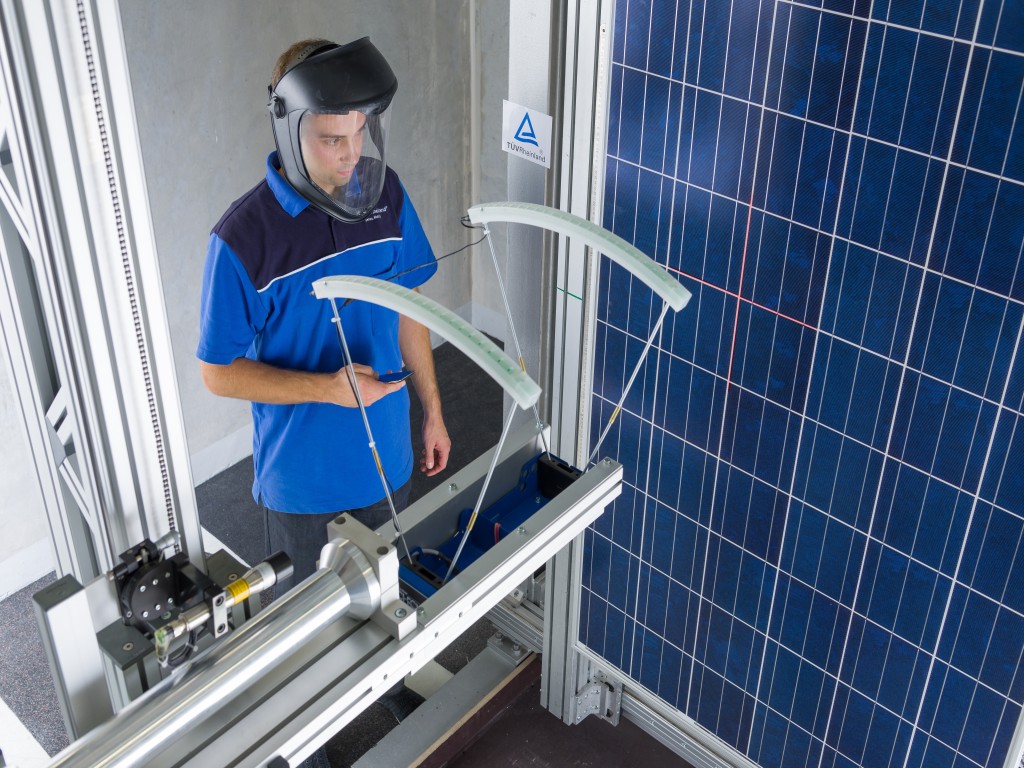Corrosion Testing of PV Modules

We test and certify the durability of photovoltaic modules
Solar power has key role in increasing alternative energy sources. Technological progress is increasing the ways in which PV modules can be installed and used. Consequently, requirements on systems and performance are also increasing. TÜV Rheinland is responding to this situation by providing manufacturers, investors and private and commercial plant operators with new testing methods and certifications.
PV systems installed near coastlines can be tested and certified for salt mist corrosion, while systems used in agricultural environments, for example, on the roofs of livestock buildings, can be tested for corrosion from the ammonia present in sprays and liquid manure.
Use our precision corrosion testing to guarantee the durability of your PV modules.
Corrosion testing for continuous efficiency and reliability
PV module performance can be verified using our tests and certifications. This is also important to safeguard investments and returns. Independent third-party testing of PV modules increases consumer confidence while strengthening brand image in highly competitive global markets. Furthermore, tenders for PV systems are increasingly requiring proof of corrosion resistance.
The corrosion tests according to IEC 62716:2013 (ammonia) and IEC 61701:2020 (salt) are carried out in our state-of-the-art solar laboratory at the Cologne site. Advantage of our corrosion tests: Only three samples are required to perform the testing.
For 30 to 40 module batches, corrosion test samples can then easily and effortlessly be included with the samples for safety and type suitability/approval testing. This package of type, safety and corrosion testing saves you time and money.
We have an international network of experts available at any time and anywhere in the world. Take advantage of an extensive portfolio of services, all from a single provider.
Our service portfolio for corrosion testing of PV modules
Ammonia and salt mist
Our PV module corrosion testing services deliver highly accurate results to significantly bolster customer confidence in your product.
Both ammonia and salt mist tests are standard tests that we perform at our Cologne site in a corrosion chamber. After the procedure has been successfully completed (duration: approx. 1.5 to 2 months), we issue a standard-compliant test report and a corresponding "ammonia" and/or "salt mist" test mark.
All from a single provider: TÜV Rheinland offers many extra services
You not only benefit from ammonia and salt mist testing, but also from a range of extra services from TÜV Rheinland. These include:
- Highly detailed analysis and research via intensive cross-disciplinary cooperation between the individual departments under the umbrella of TÜV Rheinland
- Regular feedback on corrosion testing progress over the entire duration of testing
- Possibility of re-testing modified PV modules based on the CDF (Constructional Data Form) thereby greatly simplifying test procedures
Find out more about our solar services!
Contact









